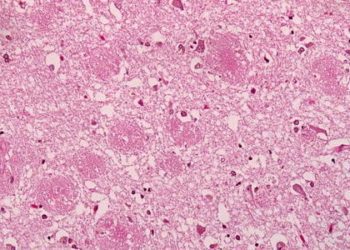Picky eaters more likely to display psychiatric impairment
1. Children who were identified as moderate or severe selective eaters (picky eaters) were more likely to display of psychopathological symptoms such as anxiety, depression, and attention-deficit/hyperactivity disorder (ADHD).
2. As selective eating worsened on the spectrum, psychiatric symptoms because more severe.
Study Rundown: Selective eating (SE) or picky eating is a common occurrence for many children and is often treated as developmentally normal. Previous studies have shown that selective eating is associated with impairment in emotional, physical, and social domains, but it is unclear when practitioners should intervene. Researchers of the current study sought to describe the psychopathology, associated features, impairment, and family factors associated with SE, and also to describe when SE demands clinical attention. Children with severe SE were more likely to have a diagnosis of depression or social anxiety. Both groups of moderate and severe SE were found to display significant symptoms of depression, anxiety, and generalized anxiety. Moderate SE was also associated with symptoms of separation anxiety and ADHD. Results are limited by self-report bias, as data was obtained via parental report, and may not be fully generalizable, as children with pervasive developmental disorders were excluded. Nonetheless, the results of this study should encourage providers to intervene with patients who display signs of moderate SE.
Click to read the study, published today in Pediatrics
Relevant Reading: Problem eating behaviors related to social factors and body weight in preschool children
In-Depth [cross-sectional study]: Children ages 2 to 5 were screened for potential psychiatric disorders/symptoms while attending one of Duke Children’s Pediatric Primary Care Clinics. A total of 917 children were identified and completed The Preschool Aged Psychiatric Assessment, an assessment of psychopathology. Moderate SE was identified if a child only ate within the range of their preferred foods, while severe SE was identified if eating with others was difficult because of the extreme limited range. Children with severe SE were more likely to have a diagnosis of depression (OR = 2.01; 95% CI: 1.2-3.8, p = .01) or social anxiety (OR = 2.7; 95% CI: 1.3-5.5, p = .009). Children with severe/moderate SE were shown to have significantly elevated symptoms of depression (severe- p =.01, moderate- p <.001), anxiety (severe- p =.002, moderate- p =.03), and generalized anxiety (severe- p =.004, moderate- p =.02). Participants with moderate SE were also more likely to express symptoms of separation anxiety (p =.03) and ADHD (p =.001). Both levels of SE were associated with heightened aversions to food and reduced growth as well as unique patterns of sensory experience, such as enhanced sensitivity to food texture, smell, visual cues, and motion.
Image: CC
©2015 2 Minute Medicine, Inc. All rights reserved. No works may be reproduced without expressed written consent from 2 Minute Medicine, Inc. Inquire about licensing here. No article should be construed as medical advice and is not intended as such by the authors or by 2 Minute Medicine, Inc.








